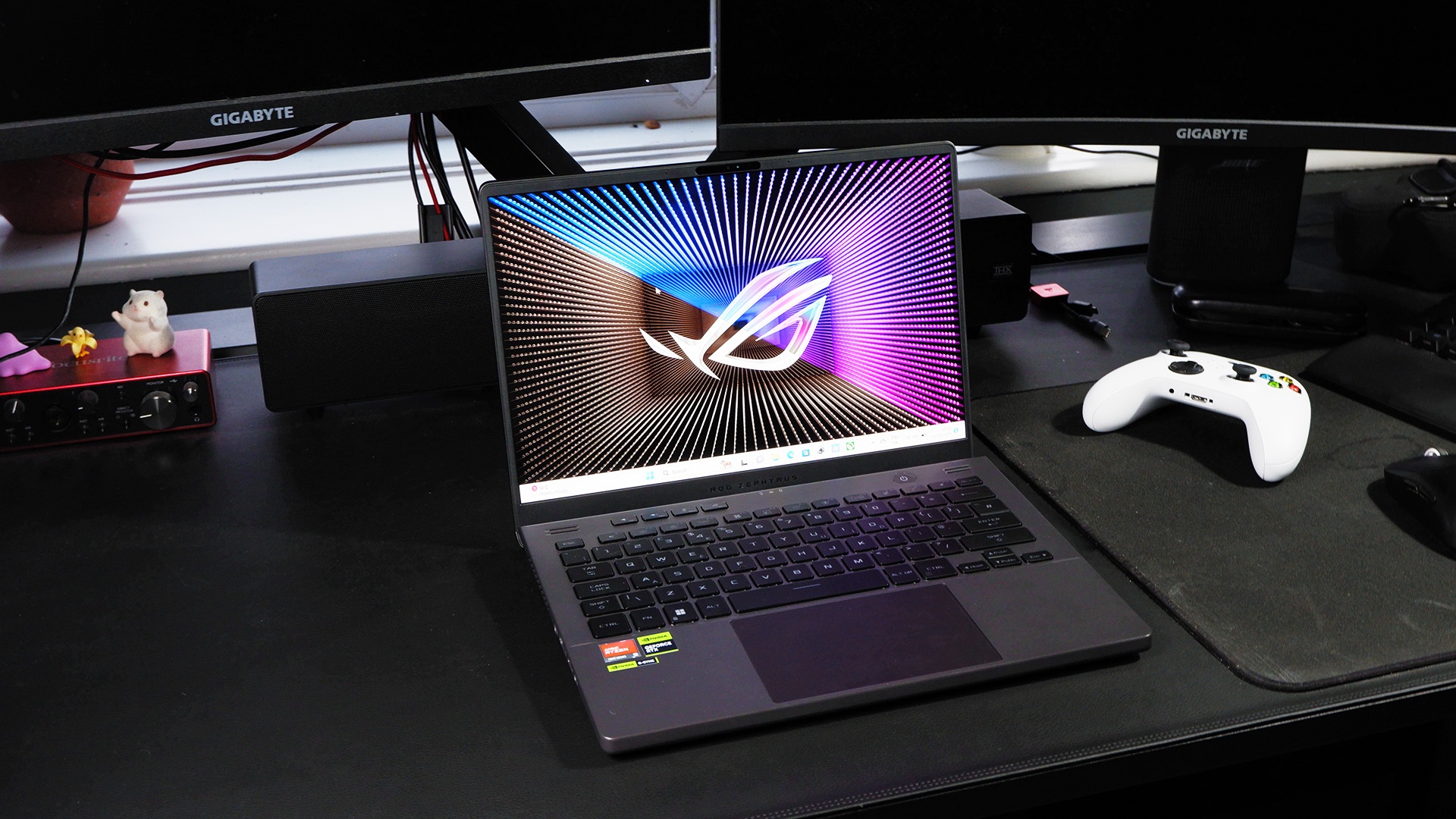Our Verdict
Without the overpowered RTX 4090, I'd recommend picking up the G14 (2023) in a heartbeat. However, with this exact spec, I just can't get onboard.
For
- Gorgeous Mini LED screen
- Compact form factor
- Loads of connectivity
- Impressive build
Against
- Not a good fit for an RTX 4090
- Slower than some RTX 4080 laptops
PC Gamer's got your back
The Asus ROG Zephyrus is one of the nicest laptops I've tested in recent memory, almost ruined by an unnecessary RTX 4090.
Let me explain—because the Zephyrus G14 does some things very well. Starting with the chassis; this laptop comes with a milled magnesium-aluminium lid and the finish is excellent. There's no faulting the subdued look and pristinely cut design. The unit I have here for review doesn't feature the AniMe Matrix LEDs found on some but that fits my black heart just fine.
You will still find some plastic on the underside of this laptop, and there is some flex to the vented plastic for the cooling solution, but otherwise it's a lovely little machine that feels plenty sturdy.
'Little' being the key word here, too. This is a 14-inch laptop with an incredibly small footprint considering it's stuffed with the most powerful mobile GPU available (noting that here with a sense of foreboding). Yet I do rate this size of laptop very highly. You could stuff it in a backpack without a second thought, or take it on a trip abroad and be no worse off for it in your luggage. It's a big reason why I loved the 2022 G14. The underside looks a little different on the newer 2023 model but it's generally much the same as last year's.
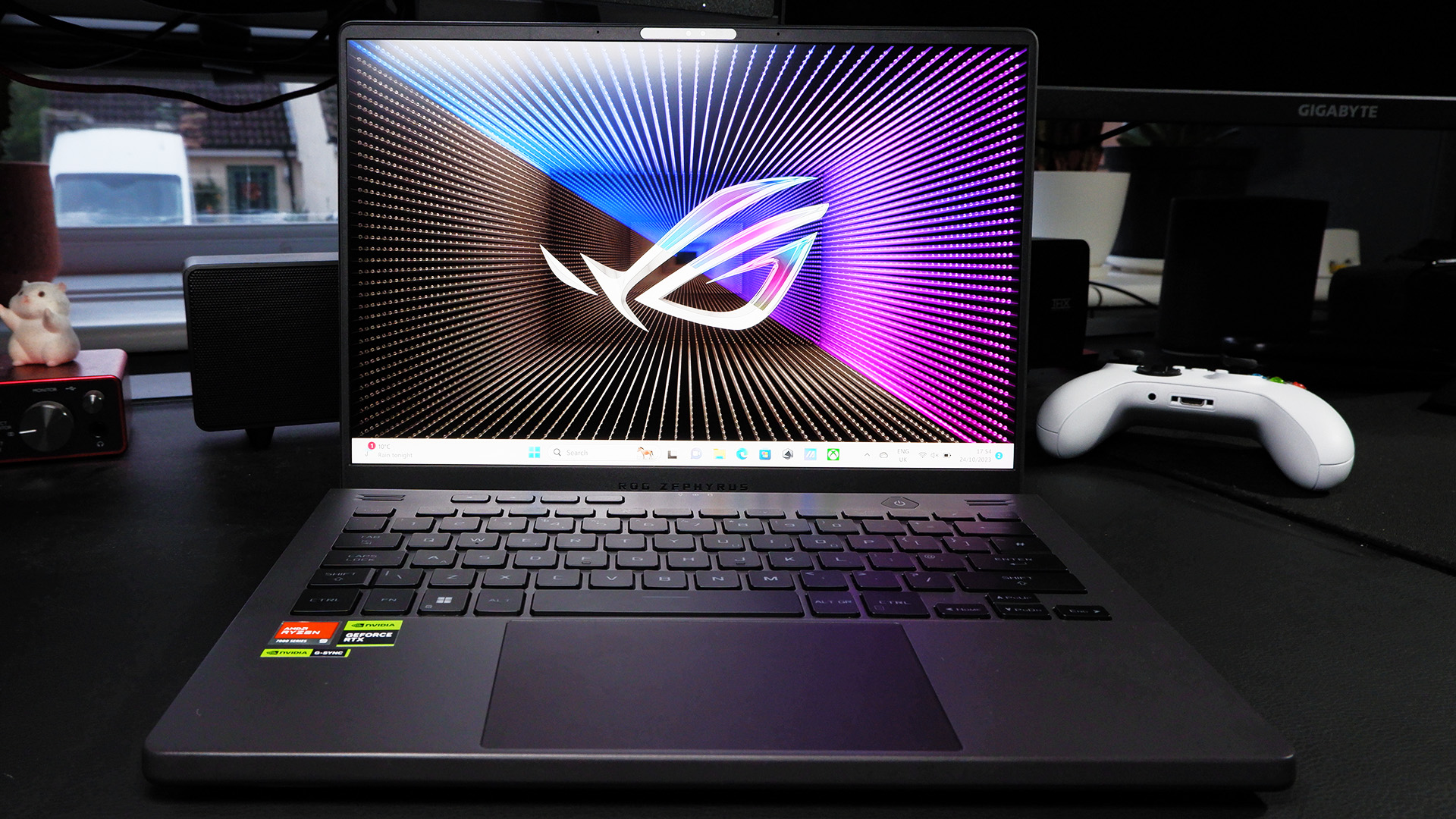
CPU: AMD Ryzen 9 7940HS w/ 780M graphics
GPU: Nvidia GeForce RTX 4090 mobile
RAM: 32GB DDR5-4800 (16GB soldered/16GB replaceable SO-DIMM)
SSD: 1TB PCIe Gen4 SSD
Screen size: 14-inch
Screen type: Mini LED
Resolution: 2560 x 1600 (16:10)
Refresh rate: 165Hz (w/ G-Sync)
Response time: 3ms
Ports: USB 3.2 Gen 2 Type-A x2, USB 3.2 Gen 2 Type-C x1, HDMI 2.1 x1, USB4 x1, microSD card reader, 3.5mm jack x1
Price: $3,300/£3,300
The G14 is also chocked full of useful ports. There's a microSD card reader, a USB4 port, and even a HDMI 2.1 port.
Open the G14 and you'll be greeted by one of the most stunning screens I've seen in years. Courtesy of Mini LED technology, this is absolutely the time and place for such screen tech to be rolled out. Asus call it ROG Nebula HDR. To you or I, it's a 165Hz, 3ms Mini LED 1600p panel with 600 nits of brightness and 504 dimming zones. It's also drop-dead gorgeous.
Everything pops on this Mini LED. Everything. I jumped into Horizon Zero Dawn and simply to wander around for the thrill of gawking at stuff. I lost myself during the PCMark gaming battery test. Using this screen reminds me of when I bought my OLED TV—you just want to experience everything from games to shows for the fantastic blacks, deep colours, and in-your-face luminance.
Navigating around the G14 desktop is a breeze. The track pad is responsive and takes up most of the space underneath the compact keyboard. The keyboard is also a treat with the full width of the laptop being used to space out each key from one another. That sounds so trivial but I assure you it's absolutely not. It makes mistypes much less common than with a tightly packed together keyboard. You only have to give up a numpad to do it, which I'm fine with on this sort of compact device.
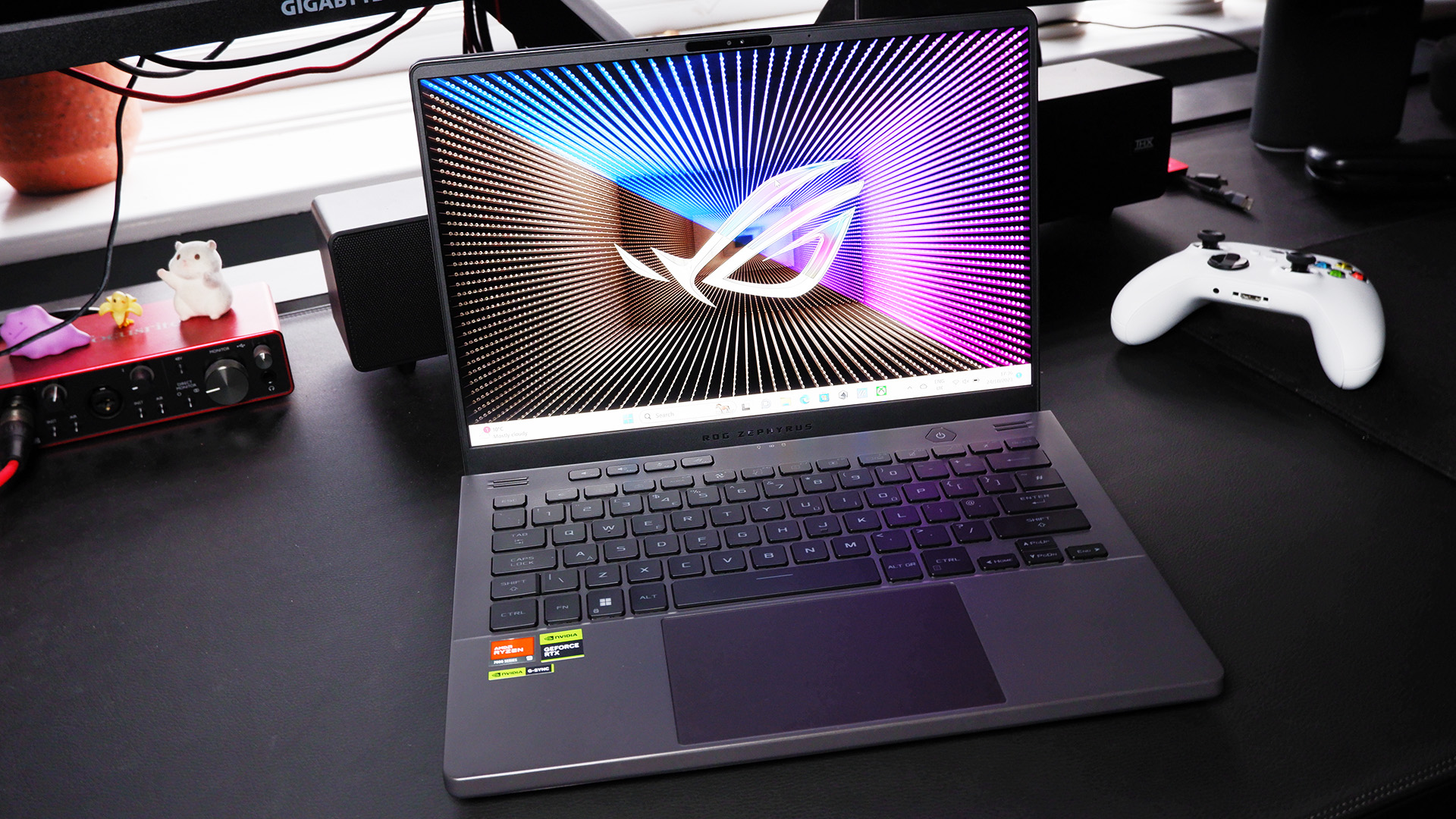
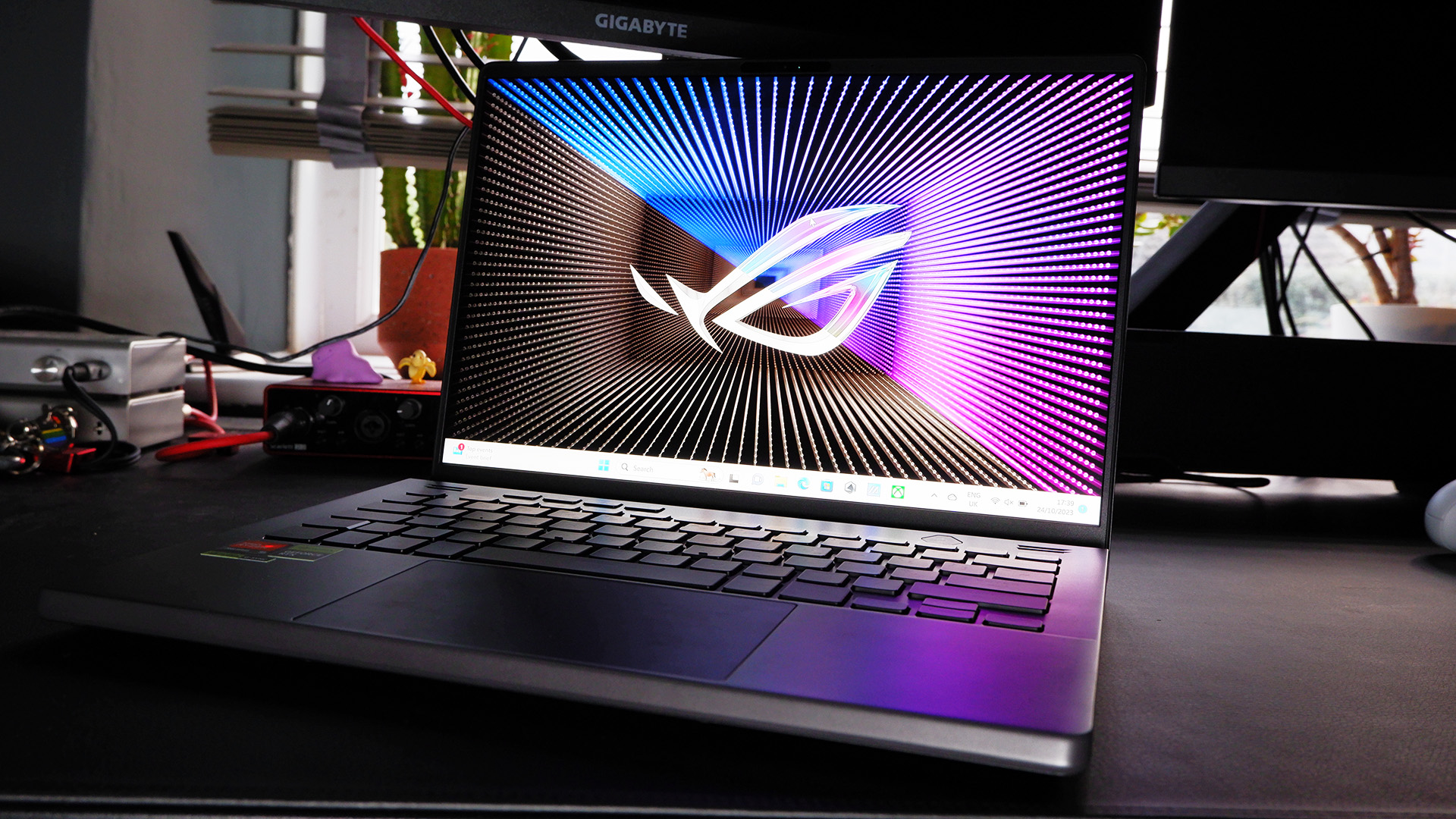
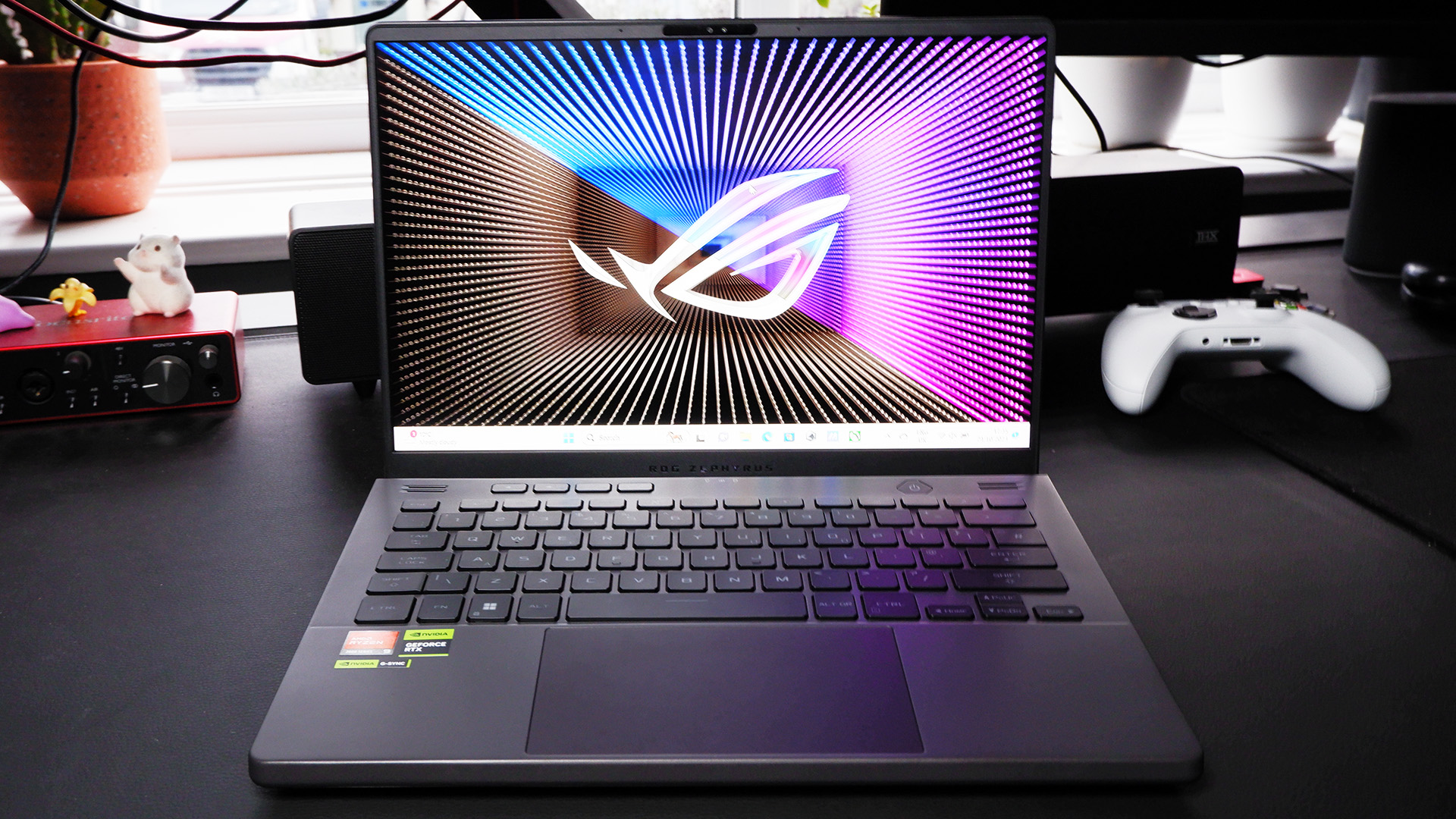
A highlight of this laptop, and many others today, is the AMD Ryzen 7 7940HS. This latest generation of mobile chips from AMD have been some of the company's finest to date. At eight cores and 16 threads, we're truly into high performance territory even in a small form factor. This Ryzen chip is competitive with some of the best from Intel we've tested, though importantly it comes equipped with Radeon 780M graphics—useful if you want to save your battery with a less graphically demanding game.
Rated to up to 5.2GHz Boost, you'll more often see this chip around the 4.6GHz mark in demanding workloads, or lower still if you're really pushing it with a high load. The chip demands around 45W on average, though crucially the G14 keeps the chip well under control at under 90°C most of the time.
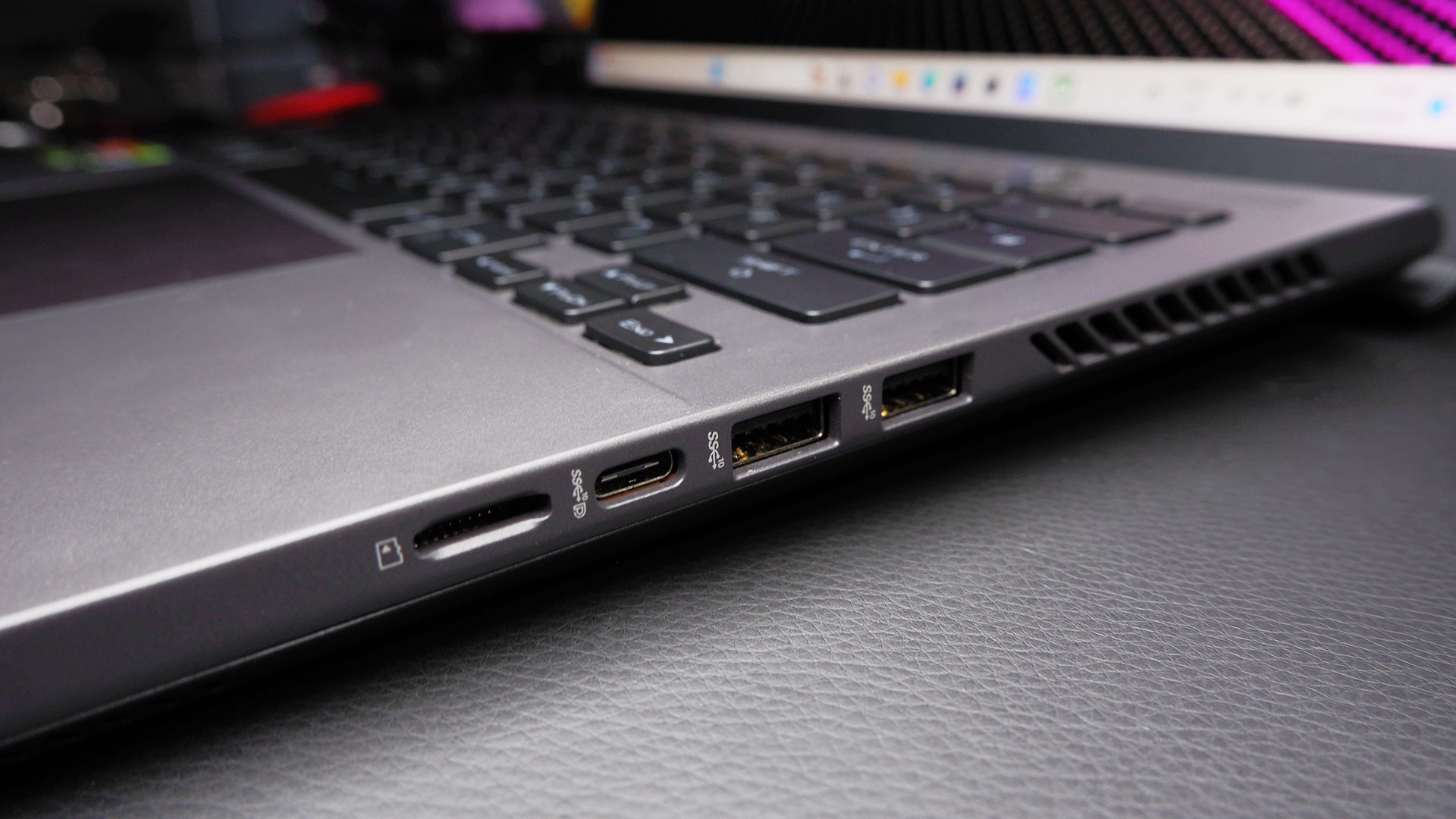
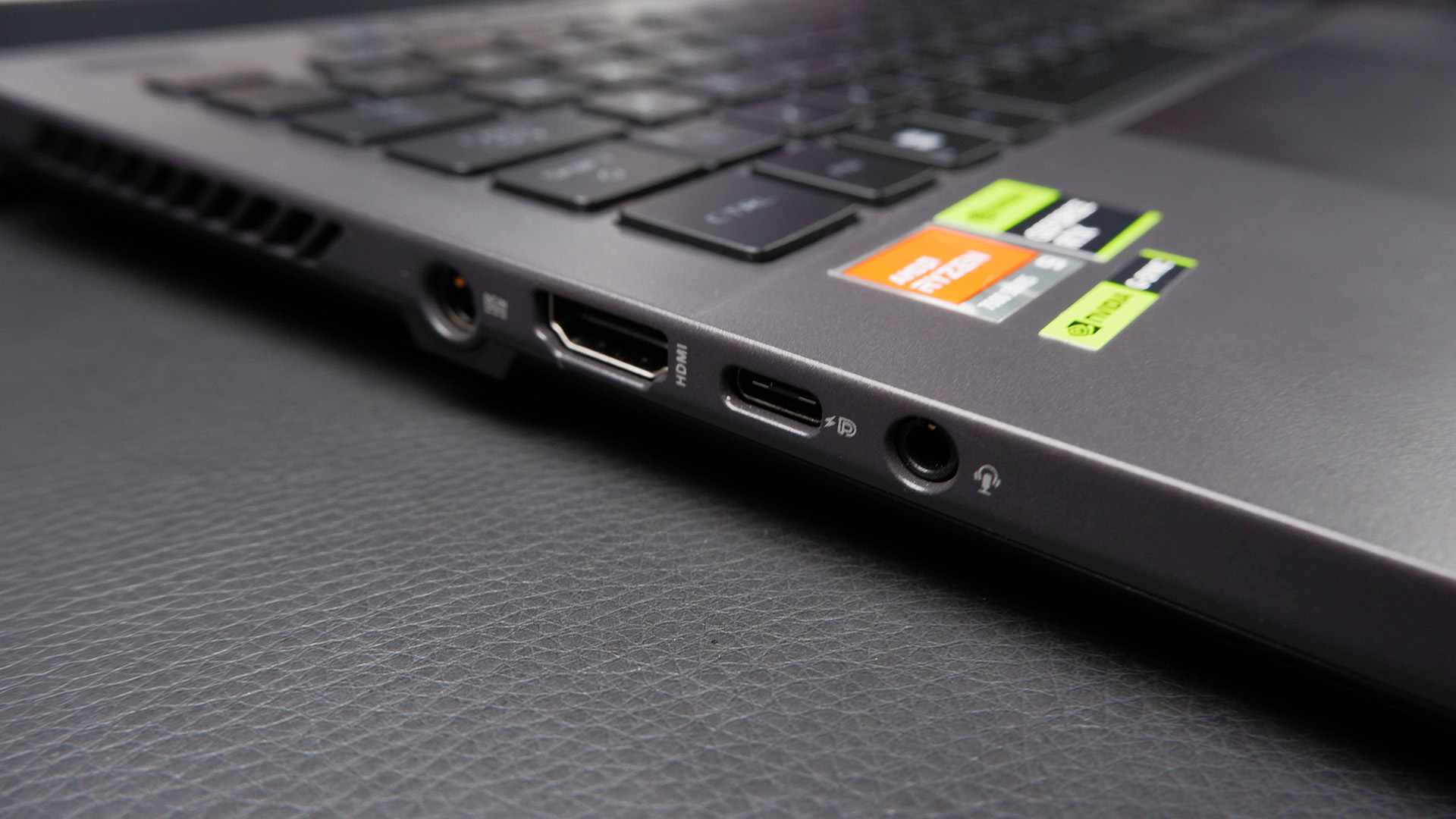
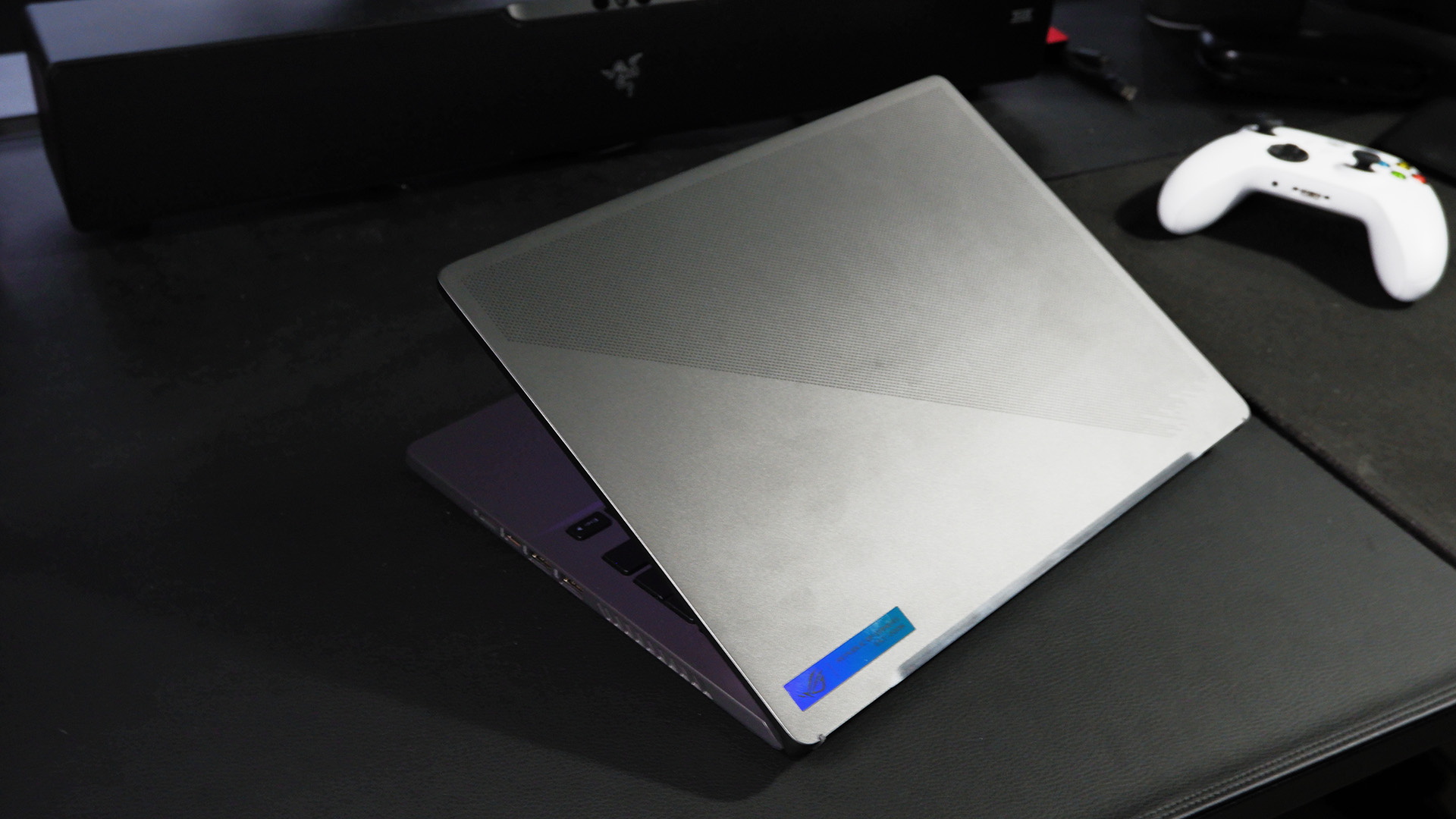
So, I'm a fan of the chassis, screen, keyboard, trackpad, and CPU. Now let me spoil our fun by talking about the GPU.
There's simply no need for an RTX 4090 in this machine. It's not cut out for it. Rather than let the RTX 4090 melt the entire system, Asus has limited this card to just 125W. That's 50W lower than some other RTX 4090 gaming laptops we've tested. Admittedly these other laptops aren't anywhere near as small in stature as the G14, though when the G14 has to run an RTX 4090 around the 85W mark, I am left wondering if it's really cut out for this sort of graphics chip at all.
There's a big performance deficit between the G14 and more suitably large RTX 4090 laptops we've tested. At times it's only a touch faster than some RTX 4080 laptops, and there are times when it's bested by them.
I just do not see the benefit of stuffing a top-end GPU that only works if you restrict it so much on power than it is outperformed by a gaming laptop with a lower-tier GPU inside it. I'm even running this device in its full Turbo mode—you will certainly want to lower it to a more moderate fan speed for better acoustics.
✅ You find a good deal on a lower-spec version: Without the RTX 4090 onboard, this is a great gaming laptop. You won't find the same screen on lower models, but even the non Mini LED screen has impressed us in the past.
✅ You need a compact device: This is the best 14-inch gaming laptop going. A superbly compact form factor, if you don't mind the smaller screen size.
❌ You want an RTX 4090's worth of performance: This isn't the best way to experience a mobile RTX 4090. It's barely even an RTX 4080's worth.
This GPU doesn't come free, you know? You'll need to spend $3,300 to score this RTX 4090-equipped G14—nearly $1,000 more than the RTX 4080 version at $2,500. Granted, you don't get the Mini LED screen on the lower-end model, and that tears me up inside, but I still like the traditional IPS screen Asus has previously opted for on its G14 models. And I bet the performance isn't all that far off with that RTX 4080 under the hood rather than this ungainly monstrosity. I'd also consider the even cheaper still RTX 4070 model.
At least this device still delivers admirably battery life for that grandiose GPU stuffed inside it. At 74 minutes during PCMark's gaming battery test, it's not the longest battery life going, but it's far from the shortest. Perfectly acceptable, if not quite good, to get a 76WHr battery in a laptop of this size.
I'm in a bit of a pickle, then, because I really think the new G14 is a wonderful device in so many ways. It's more this exact specification that I can't vouch for, and it is all that RTX 4090's fault. It's just an unnecessary bolt-on in an otherwise incredibly well put together gaming laptop.
It's a shame to have to give up that Mini LED screen to score a more suitable GPU, and if that's a dealbreaker for you then look at the Acer Predator Helios 16 as a larger alternative. However, if you're looking solely for a 14-inch laptop, I still think there's enough to be said for the G14 that, with the correct GPU, I'd recommend someone go out and buy it.
Without the overpowered RTX 4090, I'd recommend picking up the G14 (2023) in a heartbeat. However, with this exact spec, I just can't get onboard.

Jacob earned his first byline writing for his own tech blog. From there, he graduated to professionally breaking things as hardware writer at PCGamesN, and would go on to run the team as hardware editor. He joined PC Gamer's top staff as senior hardware editor before becoming managing editor of the hardware team, and you'll now find him reporting on the latest developments in the technology and gaming industries and testing the newest PC components.
